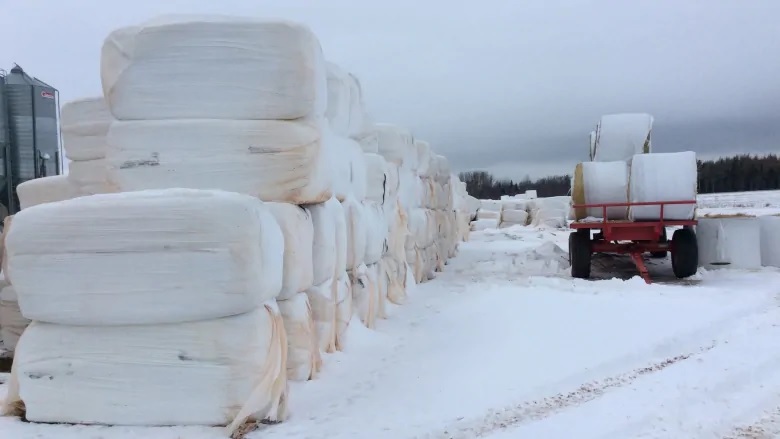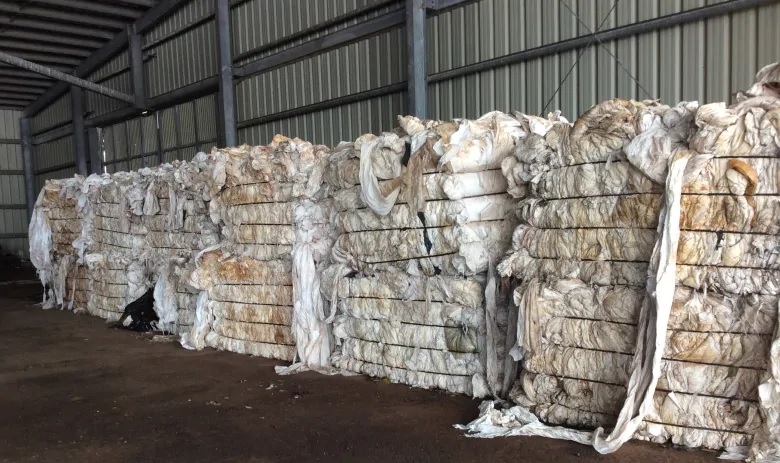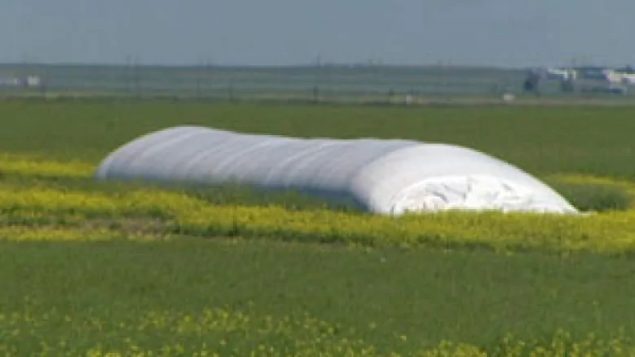While plastic waste campaigns focus mainly on big city issues, there is a little discussed but nonetheless major contributing industry to plastic waste: farming.
This comes mostly from plastic twine and cord and the plastic wrapping for grain and hay.
The western prairie province of Alberta is looking towards a three-year pilot project to discuss recycling options to deal with the annual thousands of tonnes of plastic waste from farming and ranching each year

Plastic is also used to wrap hay bales against the weather (here in P.E.I) at farms across Canada resulting in thousands of tonnes of waste plastic annually. (Nancy Russell-CBC-Nov 2018)
The Alberta Beef Producers has been given a 750,000 grant to determine logistics issues, various costs and propose policy options
A 2007 study estimated that between 4,300 and 5,000 tonnes of polypropylene (PP-plastic) twine was sold in the province in addition to another 3,000 to 4,000 tonnes of PP wrapping for silage and grain. A second study in 2013 estimated the figures at 2,000 to 6,000 tonnes for cord and 3,300 to 6.400 tonnnes for wrapping.
The problem is that there has been little effort or availability for recycling of these thousands of tonnes of annual plastic waste. While a survey suggested the vast majority of farmers (80%) wanted to recycle, much of it ends up being burned or sent to landfill.

Another province concerned with the farm waste issue is the maritime province of Prince Edward Island. Here, silage plastic and boat shrink wrap from across the small province are shipped to the East Prince Waste Management Facility where they are put in bales to be sold for recycling. (Nancy Russell-CBC-Nov 2018)
The neighbouring province of Saskatchewan last year began a programme charging 24 cents per kilo as an environmental handling fee on grain bags. Some 20 collection sites were set up last year around the province with plans to add 15 more this year. A six-year pilot programme had seen some 3,600 tonnes of grain bags recycled. The waste plastic is cleaned and pelletised with the pellets sold to other plastics manufacturers. The money generated from those sales helps to reduce the recycling fee.
Additional information-sources
- Alberta government: farm plastic recycling pilot programme
- Alberta Farmer: Feb 19/19: Pilot programme to find solutions for plastic waste
- CBC: Jan 22/19: Alberta puts $750K into farm plastic pilot
- Western Producer: J Simes; Nov 29/18: Alberta to fund plastic waste pilot
- CBC: N Russell: Diverting tonnes of PEI farm plastic







For reasons beyond our control, and for an undetermined period of time, our comment section is now closed. However, our social networks remain open to your contributions.